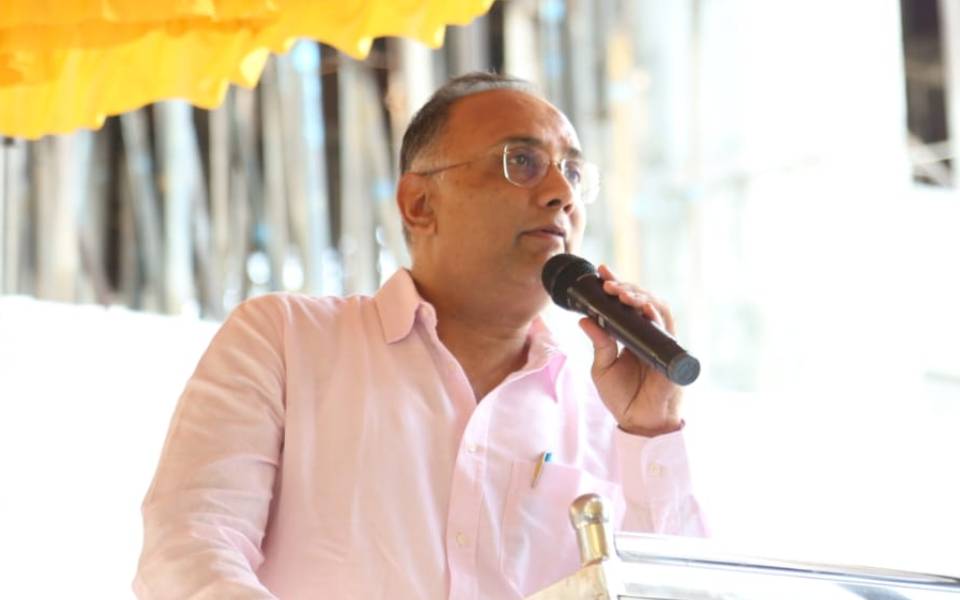Bengaluru: The Karnataka government is exploring the possibility of conducting funerals of individuals who donate their organs after death with full state honours, Health Minister Dinesh Gundu Rao said on Friday.
He also said the government would soon formulate a policy to publicise the importance of organ donation with the aim of encouraging more people to participate in such noble acts.
The minister posted on social media platform X, encouraging people to become organ donors, saying that a single organ donor can save up to eight lives.
"We believe this noble act of gifting lives deserves a greater appreciation, and our government is contemplating a programme that recognises and honours individuals who donate their organs after death," he said.
The government, the minister said, is exploring ideas including awarding certificates and conducting funerals of organ donors with full state honours.
''We shall soon formulate a policy to publicise the importance of organ donation, which will encourage more people to participate," Rao said.
He urged people to join the cause and help others live a more fruitful life.
ಯಾವುದೇ ಪ್ರತಿಫಲಾಪೇಕ್ಷೆ ಇಲ್ಲದೆ ಮಾನವೀಯ ನೆಲೆಯಲ್ಲಿ 'ಅಂಗಾಂಗ ದಾನ' ಮಾಡಿ ಇನ್ನೊಬ್ಬರ ಜೀವ ಉಳಿಸಲು ನೆರವಾಗುವ ವ್ಯಕ್ತಿಗಳನ್ನು ಮತ್ತು ಕುಟುಂಬದವನ್ನು ಗುರುತಿಸಿ ಗೌರವಿಸಲು ರಾಜ್ಯ ಸರ್ಕಾರವು ಚಿಂತನೆ ನಡೆಸಿದೆ.
— Dinesh Gundu Rao/ದಿನೇಶ್ ಗುಂಡೂರಾವ್ (@dineshgrao) November 3, 2023
ಅಂಗಾಂಗ ದಾನ ಮಾಡುವ ವ್ಯಕ್ತಿ ಅಥವಾ ಕುಟುಂಬಗಳಿಗೆ ಪ್ರಮಾಣಪತ್ರಗಳನ್ನು ನೀಡಿ ಗೌರವಿಸುವ ಹಾಗು ತಮಿಳುನಾಡು ಮಾದರಿಯಲ್ಲಿ…
Let the Truth be known. If you read VB and like VB, please be a VB Supporter and Help us deliver the Truth to one and all.
Panaji (PTI): As part of a crackdown against tourist establishments violating laws and safety norms in the aftermath of the Arpora fire tragedy, Goa authorities on Saturday sealed a renowned club at Vagator and revoked the fire department NOC of another club.
Cafe CO2 Goa, located on a cliff overlooking the Arabian Sea at Vagator beach in North Goa, was sealed. The move came two days after Goya Club, also in Vagator, was shut down for alleged violations of rules.
Elsewhere, campaigning for local body polls, AAP leader Arvind Kejriwal said the fire incident at Birch by Romeo Lane nightclub at Arpora, which claimed 25 lives on December 6, happened because the BJP government in the state was corrupt.
An inspection of Cafe CO2 Goa by a state government-appointed team revealed that the establishment, with a seating capacity of 250, did not possess a no-objection certificate (NOC) of the Fire and Emergency Services Department. The club, which sits atop Ozrant Cliff, also did not have structural stability, the team found.
The Fire and Emergency Services on Saturday also revoked the NOC issued to Diaz Pool Club and Bar at Anjuna as the fire extinguishers installed in the establishment were found to be inadequate, said divisional fire officer Shripad Gawas.
A notice was issued to Nitin Wadhwa, the partner of the club, he said in the order.
Campaigning at Chimbel village near Panaji in support of his party's Zilla Panchayat election candidate, Aam Aadmi Party leader Kejriwal said the nightclub fire at Arpora happened because of the "corruption of the Pramod Sawant-led state government."
"Why this fire incident happened? I read in the newspapers that the nightclub had no occupancy certificate, no building licence, no excise licence, no construction licence or trade licence. The entire club was illegal but still it was going on," he said.
"How could it go on? Couldn't Pramod Sawant or anyone else see it? I was told that hafta (bribe) was being paid," the former Delhi chief minister said.
A person can not work without bribing officials in the coastal state, Kejriwal said, alleging that officers, MLAs and even ministers are accepting bribes.





